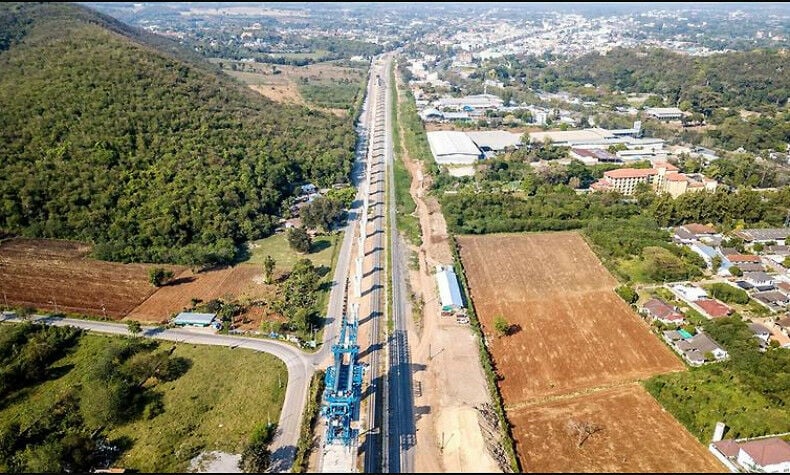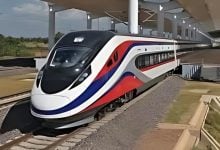Thai-China high-speed rail set to boost ASEAN connectivity

Chinese Ambassador Han Zhiqiang projected a significant enhancement in the collaboration between Thailand and China upon the conclusion of the anticipated high-speed rail project. The statement came during a seminar addressing the economic ties between the two nations and the Thai-China visa-free agreement, held by the Thai-Chinese Journalists Association recently.
The ambassador emphasised that the completion of the Thai-China high-speed rail would bolster Thailand’s connectivity with Laos, China, and the Association of Southeast Asian Nations (ASEAN) at large, given Thailand’s strategic location linking to various regions.
The Thai-China high-speed rail project, overseen by the Transport Ministry, is projected to be fully operational by 2028. The Nong Khai-Vientiane section is set to be the first completed segment of the rail line. The project committee is especially keen on accelerating the 7.3-kilometre stretch, estimated to cost around US$3 billion. The State Railway of Thailand is conducting a feasibility study on this project.
The final design selection for the project will occur this year, and bidding for the project will commence in 2025. The rail line, extending over 606 kilometres, will link the city of Nong Khai and Bangkok within the Thai section. The high-speed train will eventually expand to connect Laos and China.
Ambassador Han also underscored the potential impact of the transport project and policies such as the Regional Comprehensive Economic Partnership in opening new opportunities for Thai-China collaboration. The need for discussions to upgrade the ASEAN-China Free Trade Agreement (ACFTA) was also stressed, as such an upgrade could amplify cooperation in numerous sectors.
The ACFTA, operational since 2004, has gradually reduced import duties. According to the agreement, normal track goods will eventually have a zero final rate, while sensitive track items will receive import duty cuts or exemptions at a later stage.
The Foreign Trade Department highlighted the beneficial influence of the ACFTA on Thai exports to China, specifically processed sugar items like syrup, artificial honey, and various sweeteners. Over the last decade, Thailand’s processed sugar exports to China have surged by 145% annually.
Ronnarong Phoolpipat, the department’s director-general, acknowledged China as the primary export market for agricultural products, accounting for 42% of total shipments. The high demand products include processed sugars, excluding raw sugar, such as syrup, artificial honey, caramel, and other sweeteners, widely used in food, beverages, and pharmaceutical sectors, reported Bangkok Post.
Latest Thailand News
Follow The Thaiger on Google News:


























